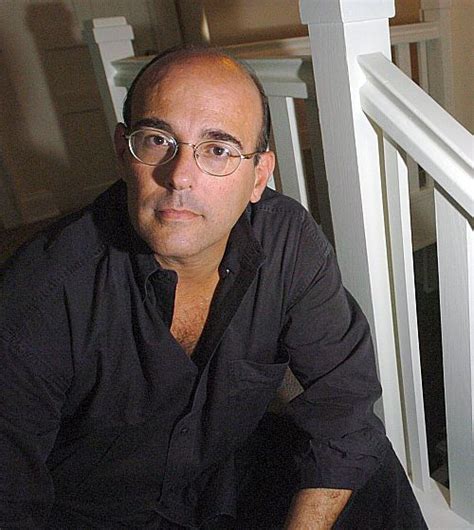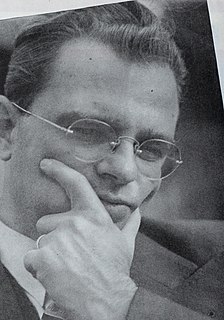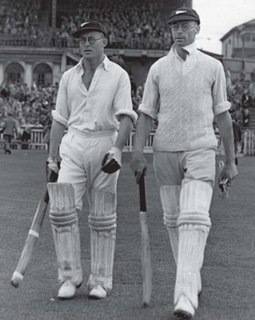A Quote by Anne Morrow Lindbergh
The here, the now, and the individual, have always been the special concern of the saint, the artist, the poet, and - from time immemorial - the woman. In the small circle of the home she has never quite forgotten the particular uniqueness of each member of the family; the spontaneity of now; the vividness of here. This is the basic substance of life. These are the individual elements that form the bigger entities like mass, future, world. We may neglect these elements, but we cannot dispense with them. They are the drops that make up the stream. They are the essence of life itself.
Quote Topics
Always
Artist
Basic
Been
Bigger
Cannot
Circle
Concern
Dispense
Drops
Each
Elements
Entities
Essence
Essence Of Life
Family
Forgotten
Form
Future
Home
Immemorial
Individual
Itself
Life
Like
Make
Make Up
Mass
May
Member
Neglect
Never
Never Quit
Now
Particular
Poet
Quite
Saint
She
Small
Special
Spontaneity
Stream
Substance
Them
Time
Uniqueness
Up
Vividness
We Cannot
Woman
World
Related Quotes
A love of neighbor manifests itself in the tolerance not only of opinions of others but, what is more important, of the essence and uniqueness of others, when we subscribe to that religious philosophy of life that insists that God has made each man and woman an individual sacred personality endowed with a specific temperament, created with differing needs, hungers, dreams. This is a variegated, pluralistic world where no two stars are the same and every snowflake has its own distinctive pattern. God apparently did not want a regimented world of sameness.
Each of the parts of philosophy is a philosophical whole, a circle rounded and complete in itself. In each of these parts, however, the philosophical Idea is found in a particular specificality or medium. The single circle, because it is a real totality, bursts through the limits imposed by its special medium, and gives rise to a wider circle. The whole of philosophy in this way resembles a circle of circles. The Idea appears in each single circle, but, at the same time, the whole Idea is constituted by the system of these peculiar phases, and each is a necessary member of the organisation.
Consider a movie: it consists of thousands upon thousands of individual pictures, and each of them makes sense and carries a meaning, yet the meaning of the whole film cannot be seen before its last sequence is shown. However, we cannot understand the whole film without having first understood each of its components, each of the individual pictures. Isn't it the same with life? Doesn't the final meaning of life, too, reveal itself, it at all, only at its end, on the verge of death?
To our senses, the elements are four and have ever been, and will ever be for they are the elements of life, of poetry, and of perception, the four Great Ones, the Four Roots, the First Four of Fire and the Wet, Earth and the wide Air of the World. To find the other many elements, you must go to the laboratory and hunt them down. But the four we have always with us, they are our world. Or rather, they have us with them.
John Lilly suggests whales are a culture maintained by oral traditions. Stories. The experience of an individual whale is valuable to the survival of its community. I think of my family stories-Mother's in particular-how much I need them now, how much I will need them later. It has been said when an individual dies, whole worlds die with them. The same could be said of each passing whale.
The basis of artistic creation is not what is, but what might be; not the real, but the possible. Artists create according to the same principles as nature, but they apply them to individual entities, while nature, to use a Goethean expression, thinks nothing of individual things. She is always building and destroying, because she wants to achieve perfection, not in the individual thing, but in the whole.
Man has no individual 'I'. But there are, instead, hundreds and thousands of separate small 'I's, very often entirely unknown to one another, never coming into contact, or, on the contrary, hostile to each other, mutually exclusive and incompatible. Each minute, each moment, man is saying or thinking, 'I'. And each time his 'I' is different. Just now it was a thought, now it is a desire, now a sensation, now another thought, and so on, endlessly. Man is a plurality. Man's name is legion.
I hope through The L Word to become an honorary member of the gay tribe. I cherish the thought that some young girl or woman somewhere may one night turn on the television and for the first time ever see her life represented - not as an isolated incident but as a multiplicity. Her overwhelming fear may have been that she might never find her tribe, she might never find love and now she knows that they are both out there waiting for her.
Every one of the constituent elements of a social group, in a modern city as in a savage tribe, is born immature, helpless, without language, beliefs, ideas, or social standards. Each individual, each unit who is the carrier of the life-experience of his group, in time passes away. Yet the life of the group goes on.
On the geometric level, we see certain physical elements repeated endlessly, combined in an almost endless variety of combinations. It is puzzling to realize that the elements, which seem like elementary building blocks, keep varying, and are different every time that they occur. If the elements are different every time that they occur, evidently then, it cannot be the elements themselves which are repeating in a building or town; these so-called elements cannot be the ultimate "atomic" constituents of space.
Many poets are not poets for the same reason that many religious men are not saints: they never succeed in being themselves. They never get around to being the particular poet or the particular monk they are intended to be by God. They never become the man or the artist who is called for by all the circumstances of their individual lives. They waste their years in vain efforts to be some other poet, some other saint...They wear out their minds and bodies in a hopeless endeavor to have somebody else's experiences or write somebody else's poems.






































